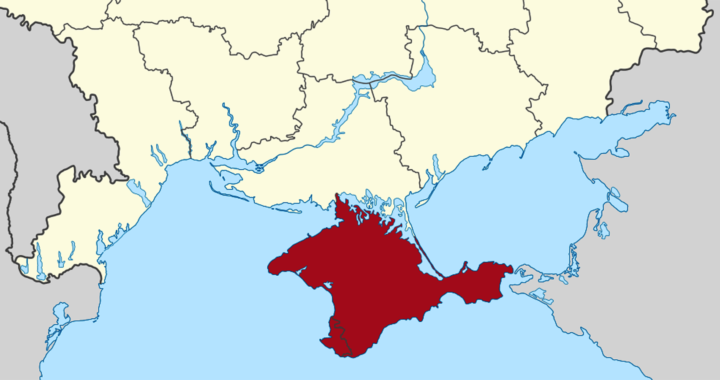Considering its annexation by Russia in 2014, among other geopolitical and international relation issues it has been involved in, it is impossible to disregard the strategic importance of Crimea. Note that this autonomous republic located in a peninsula along the northern coast of the Black Sea in Eastern Europe has been at the center of the Russia-Ukraine conflict.
But what exactly is the strategic importance of Crimea? Why are the Russians and Ukrainians are fighting over this supposed autonomous entity? What are the geopolitical significance of the Crimean peninsula and the economic significance of the Crimean economy? How does the international community see the territory?
Explained: Understanding the Importance of Crimea
Geostrategic Significance of the Crimean Peninsula
Remember that the entire territory of Crimea is located in a peninsula along the northern coast of the Black Sea. This location provides significant geostrategic advantages to whatever country or international actor that has control over it.
For the Russian Federation, while it has its own land in the Black Sea, the infrastructure is not as developed as the one found in Crimea, especially for stationing the Black Sea Fleet of the Russian Navy. Note that the fleet has been stationed in the Crimean peninsula even before its annexation in 2014. However, the annexation further gave Russia a military edge.
Analysts have noted that the annexation of Crimea by the Russians has allowed the Russian Federation to reestablish its military dominance in the Black Sea and the Mediterranean region. This dominance comes from a specific maritime advantage, as well as a significant buildup of surface-to-surface and surface-to-air missile assets in the region.
Further analyses have shown that Russia has now the capacity to enforce anti-access policies and establish an area-denial zone that covers almost the entirety of the Black Sea through its long-range missiles positioned on sea and ground.
It is important to highlight the fact that the ports in the Crimean peninsula were sought after by numerous European empires since antiquity. These ports provide quick access to the Eastern Mediterranean, which includes the northern half of Anatolia and further to the Middle East; and the Balkans and parts of Southeast Europe.
Because of the aforementioned, the geostrategic importance of Crimea for Ukraine is also undeniable. Furthermore, its specific military significance has been recognized by Western powers, especially the European Union and the United States or the North Atlantic Treaty Organization. Note that Ukraine has generally aligned itself with the European Union.
A Note on Its Strategic Economic Importance
The importance of Crimea also transcends beyond military advantages. The Crimean peninsula is also economically important because of its favorable location in the Black Sea, as well as its proximity to nearby countries such as Turkey and Romania.
Several critical routes are located near the peninsula. For example, the Dnieper River is a major transportation route that links the Black Sea with the Baltic Sea, and it crosses the European continent from north to south. Crimean ports serve not only as stopovers but also as base stations for pick-ups and drop-offs of traded goods.
Furthermore, the Black Sea is an economically significant region because it serves as a major economic thoroughfare or transportation route that connects the Caucasus region and the Caspian Sea, which include countries such as Armenia, Azerbaijan, Georgia, and southern parts of Russia, to Central and Eastern Europe.
Understanding further the economic importance of Crimea requires evaluating the effects of the Russian annexation in 2014 on the global economy. The literature noted that the event redrew the map of international economic relations and transferred economic power to Russia.
A literature review by Simona Moagăr-Poladian and Andreea Drăgoi noted that the Crimean crisis demonstrated that political decisions made by international actors can result in negative economic implications transpiring both at the regional and international levels, thereby affecting not only involved parties but also those at the sidelines.
The annexation of Crimea provided Russia with more power to promote the integration of Eastern Europe, as well as Western and Central Asia into a single economic bloc called the Eurasian Economic Union that can rival the European Union. Take note that E.U. has been planning to expand further to Eastern Europe.
Because of the strategic position of the Crimean peninsula, it serves as a gateway for linking Eurasia. However, its annexation disrupted the established economic system in the Black Sea region and nearby regions, thus leading to a backlash.
Summary: Military and Economic Importance of Crimea
Based on the discussions above, the significance or importance of Crimea centers on a geostrategic advantage that translates further to military and economic advantages. These are the major reasons why the Crimean peninsula is important to Russia, as well as to Ukraine and Western political actors such as the United States and the European Union.
The location of the peninsula fundamentally provides its controller with considerable geographic advantages that can be strategically used to build and advance or promote military and economic interest, especially in the Black Sea region, as well as nearby regions to include the Mediterranean, the Eurasian northwestern landmass, and Eastern Europe.
FURTHER READINGS AND REFERENCES
- Balasevicus, T. 2017. “Looking for Little Green Men: Understanding Russia’s Employment of Hybrid Warfare.” Canadian Military Journal. 17(3). Available via PDF
- Moagăr-Poladian, S. and Drăgoi, A. 2015. “Crimean Crisis Impact on International Economy: Risks and Global Threats.” Procedia Economics and Finance. 22: 452-462. DOI: 1016/S2212-5671(15)00238-5
- Rodgers, J. and Lanoszka, A. 2021. “Russia’s Rising Military and Communication Power: From Chechnya to Crimea.” Media, War & Conflict. DOI: 1177/17506352211027084
